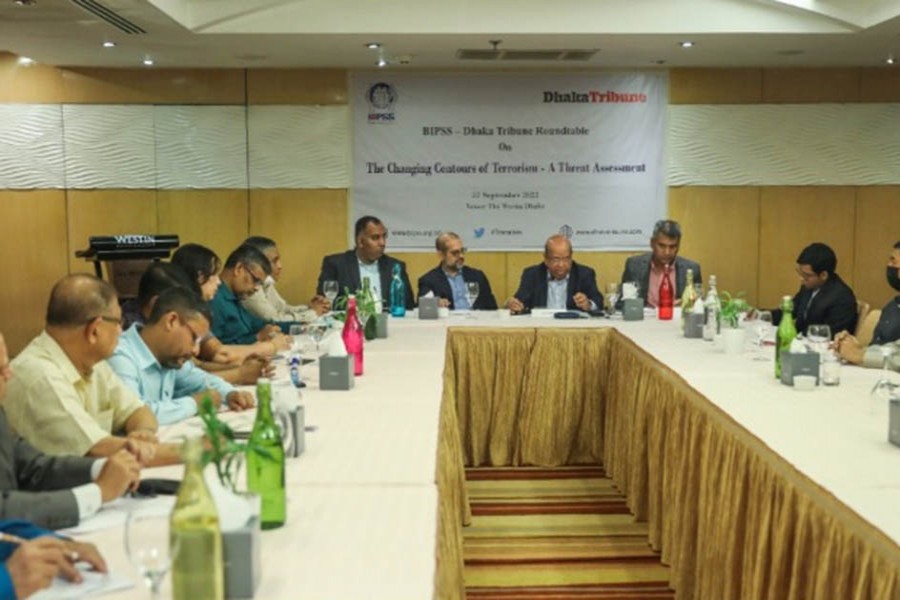President of Bangladesh Institute of Peace and Security Studies (BIPSS) Major General (Retd) ANM Muniruzzaman on Thursday stressed the need for a comprehensive strategy to counter the threat of terrorism in the country.
He said that in the absence of a comprehensive counter-terrorism strategy for Bangladesh, they are working with short-term ad-hoc policies, which cannot give long-term results.
"There is, thus, a need to work out proper strategies to counter the threat," he said while speaking at the BIPSS-Dhaka Tribune roundtable titled, "The Changing Contours of Terrorism - A Threat Assessment."
Muniruzzaman said terrorism is a hydra-headed monster. "If you cut off one head; two new heads keep growing up."
According to him, terrorist activities are appearing in the terrorism space like ethno-religious terrorist: Saffron Terror, White Supremacist Terror etc.
He also mentioned that new and modern technologies are further giving newer capacities to terrorist groups, reports UNB.
Muniruzzaman cautioned against the revitalisation of AQIS, which will be a new threat to Bangladesh and the region.
Editor of Dhaka Tribune Zafar Sobhan, diplomats, scholars, security experts, and youth representatives from various disciplines joined the roundtable which highlighted that terrorism is one of the most extensively discussed issues all across the globe and almost no country has been immune from it.
Senior Research Fellow at BIPSS and Head of Bangladesh Centre for Terrorism Research (BCTR) Shafqat Munir started by highlighting the ever changing nature of this landmark.
He identified the various trends of terrorism and the current status of different militant groups' existence in Bangladesh. He pointed out how nature has shifted in the span of the last 15 years.
Shafqat further talked about the absence of robust counter-terrorism prevention architecture, the presence of existing practices pertaining to terrorism (Lone wolf phenomenon, family as a terror unit, female radicalisation etc.), including the introduction of newer practices such as Cyber Radicalisation and Terrorism, Bio-terrorism and the Weaponisation of Utilities.
He stressed upon the necessity to include the prominent role of the armed forces, the significance of evolution and adaptation of relevant actors in compliance with the introduction of newer phenomenon and social resilience towards combatting terrorism and violent extremism.
Focusing on the roles of various actors in terrorism, the second keynote speaker, Dr. ASM Ali Ashraf, professor, Department of International Relations, University of Dhaka, illustrated the more academic aspect of this phenomenon.
Dr Ashraf talked about the existing global trends, the presence of crime terror nexus and their reciprocal relation despite existing differences in terms of their objectives.
He also talked about the necessity of coordination to improve intelligence, the existence of official channels of communication and de-classification.
He talked about the conventional definition of hard power, and how it might need minor alterations to cope with modern day global politics.
The speakers said this phenomenon has evolved significantly over the years, and with the introduction of a myriad of social and technological factors, it has become more complex and multifaceted in the contemporary world order.
Muniruzzaman mentioned that the terrorists are evolving in terms of their operational attributes and so should the relevant authorities.
He also stretched the importance of social resilience against this heinous practice to ensure social cohesion and inclusivity and promote peace.


